Charlotte Church: From 'Voice of an Angel' to unlikely spokesperson for the disenfranchised – but what next?
Angelic and off the rails, outspoken and in the pages of OK! – Church has done it all. Now she’s taking on Dylan Thomas
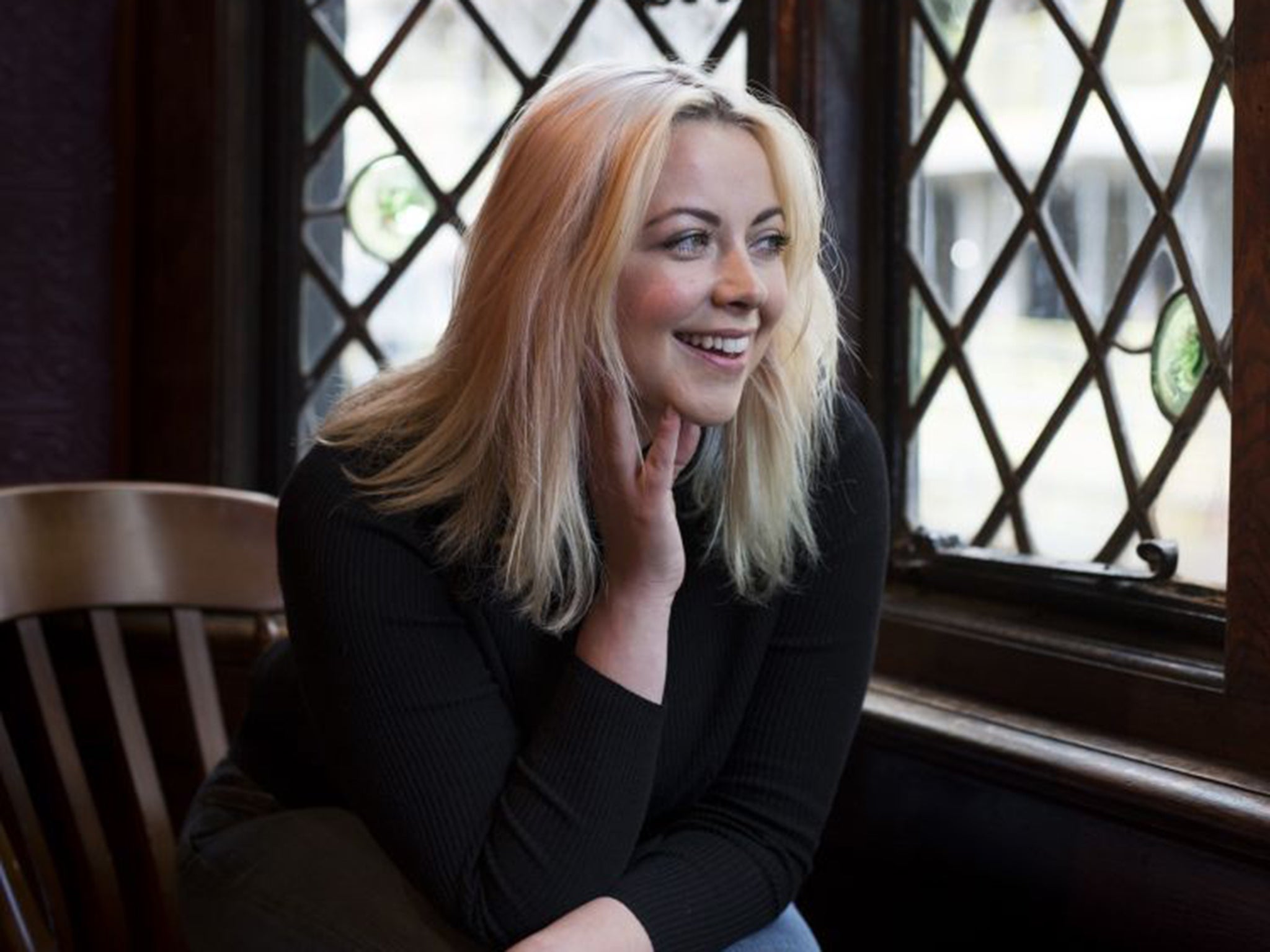
Your support helps us to tell the story
From reproductive rights to climate change to Big Tech, The Independent is on the ground when the story is developing. Whether it's investigating the financials of Elon Musk's pro-Trump PAC or producing our latest documentary, 'The A Word', which shines a light on the American women fighting for reproductive rights, we know how important it is to parse out the facts from the messaging.
At such a critical moment in US history, we need reporters on the ground. Your donation allows us to keep sending journalists to speak to both sides of the story.
The Independent is trusted by Americans across the entire political spectrum. And unlike many other quality news outlets, we choose not to lock Americans out of our reporting and analysis with paywalls. We believe quality journalism should be available to everyone, paid for by those who can afford it.
Your support makes all the difference.To begin at the beginning: from the very start of her life in the public eye, Charlotte Church has made a habit of wrong footing expectations. Before she had turned 14, she sacked the impresario who managed her ascent to international stardom and, though she had by then sold millions of albums in the US and could happily have gone to live the life of a demanding diva in a mansion in the LA hills, she chose instead to stay in her home town and become what she calls “a normal Welsh teenager”. Her every night out came under the gaze of the tabloids: she was 16, had started smoking, was dating a “bad boy” and attempting to reinvent herself as a pop star. The “Voice of an Angel, liver of a wino” headlines wrote themselves.
There followed a now defunct relationship with the Welsh rugby star Gavin Henson, which did nothing to shake off the paps, a chat show that was roundly and unfairly slated and further attempts at musical reinvention. And now, just when there are those who might wish she would disappear back to the Llandaff district of Cardiff she emerged from, Church has reinvented herself again as an unlikely spokesperson for the disenfranchised and landed herself the part of Polly Garter in Kevin Allen’s wild reimagining of Dylan Thomas’s Under Milk Wood.
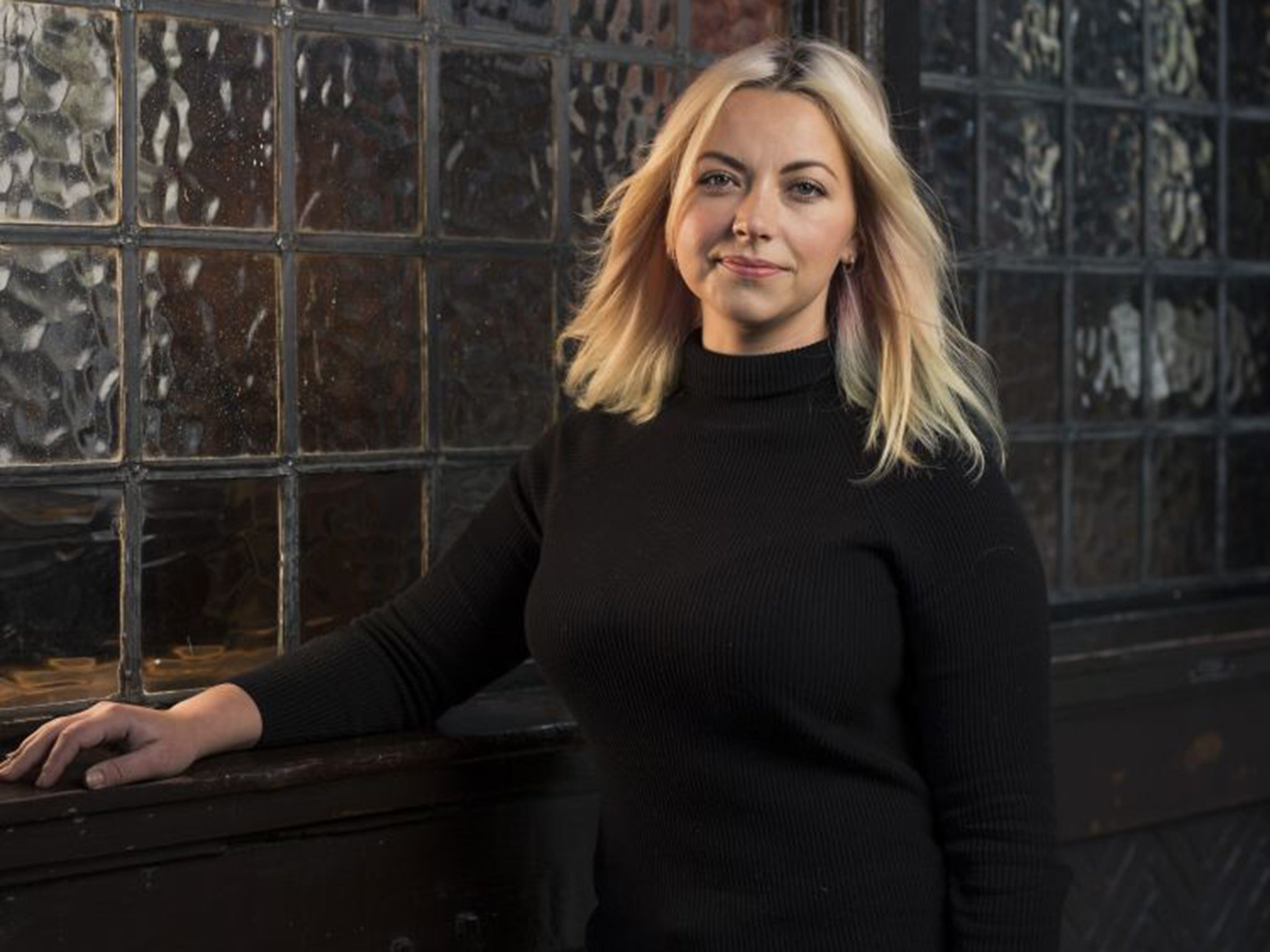
Understandably wary, she has agreed to give only two interviews to the papers she feels she can trust. These days, Church looks after her own interests. We agree to meet at the charmingly scruffy Wheatsheaf pub in central London, not least because it was where Dylan Thomas – whose birthday it would be on Tuesday – met his wife Caitlin in 1936, but also because Church feels at home in this kind of setting. She makes her own way on the train from Cardiff and, when the PR person for the film suggests sending a car to pick her up at the train station, Church tells her that she does not need to be nannied and strolls in roughly on time wearing jeans, a plain jumper and a black felt hat.
Throughout, she is hugely engaging company. Potty mouthed, warm and candid to the point of shocking, she is also, considering what she has been through at the hands of the Murdoch media, surprisingly trusting. The Murdoch empire settled with her after claims that her phone and those of her family, her friends and even the family priest had been hacked for story material. (She takes a loo break and leaves her mobile phone within reach on the table in front of me.) Unusually for a famous person giving an interview, Church sets no time limit on our conversation; she is happier to go with the flow and see where it leads us.
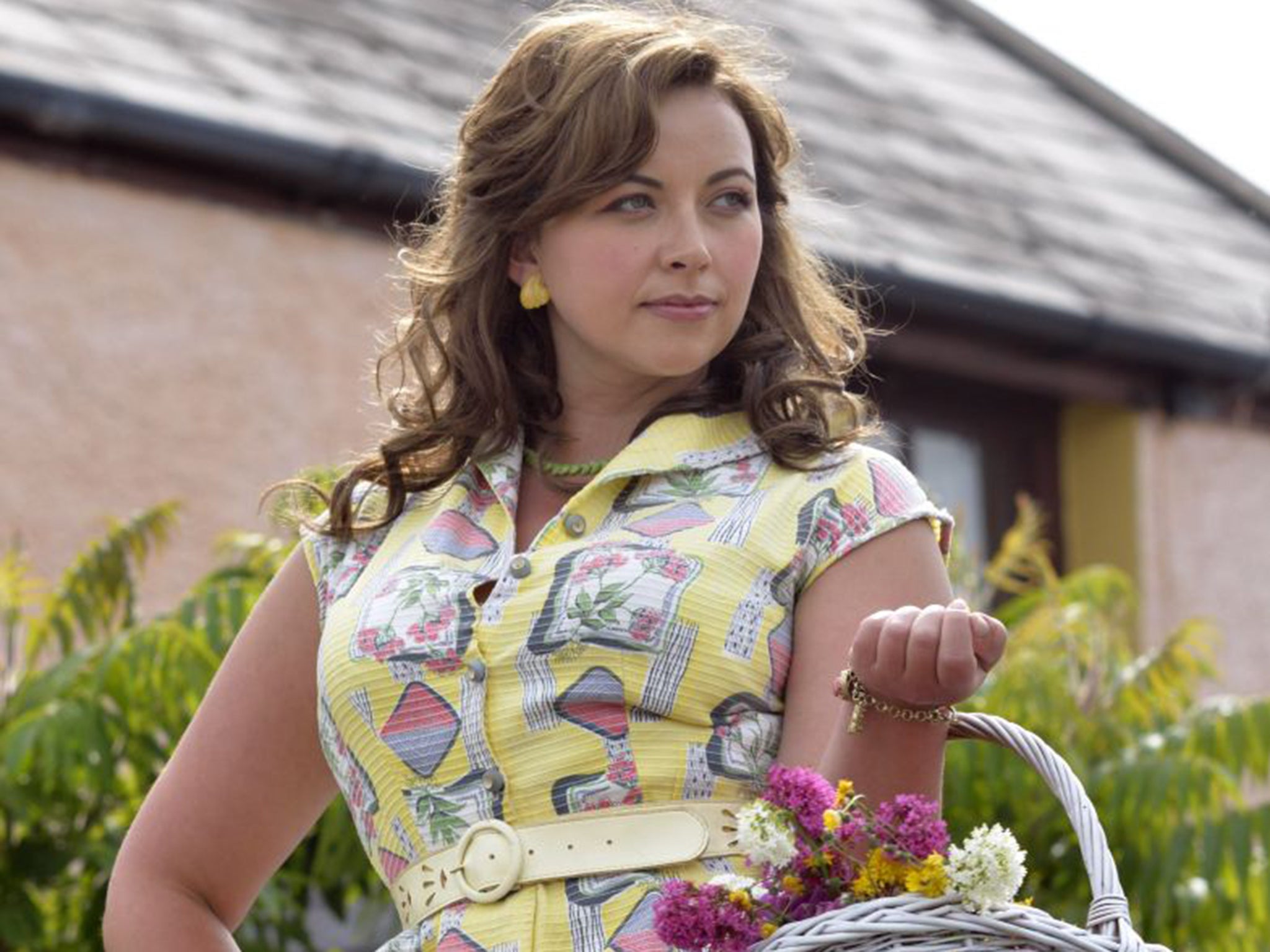
We start by talking about Under Milk Wood, which, if you remember it only from school, you might not recognise in its new twisted, grotesque and highly eroticised glory. It is, I suggest, as if Dylan Thomas’s seminal “Play For Voices” has been bought to life by The League of Gentlemen. “I think the team did a phenomenal job,” she says, “because how on earth do you go about filming it? It’s so surreal in parts anyway that whatever you do it’s a mindfuck.” Being Welsh, she must, I assume, have been familiar with the text. “Not really. I suppose I’ve seen and heard bits and bods [sic], but I’d never read it in its entirety. I didn’t grow up in such a cultured way as many of my north and west Wales counterparts. Not that culture is devoid in south Wales but my family weren’t so much… There were no books in my house growing up. Nowadays, I fill my house with them. I’ve got a bookcase that’s a secret door.” Appropriately enough, Polly Garter, the character that Church landed in Under Milk Wood, is loved and loathed in equal measure. “In a way she’s quite wholesome, but in another way she’s pretty much the most eroticised character in it. She’s hated by a lot of the community and seen as this whore who does nothing but reproduce: she sleeps with whoever she can to have babies but at the same time she’s also really sad about this one lover that she lost. It was quite complex to get into a character like that on a first try.” Had she really not acted in a film before? “Well I did do a film when I was 16 called I’ll Be There but it was utter shit.”
In one scene, Polly Garter, with a baby at her breast, speaks the lines: “You’re looking up at me now. I know what you’re thinking, you poor little milky creature. You’re thinking, you’re no better than you should be, Polly, and that’s good enough for me. Oh, isn’t life a terrible thing, thank God.” It feels, I tell her, like a momentary glimpse to the actress playing her. “It’s a fucking beautiful line,” she says, “and the whole idea of it is about this positivity, this resilience that Welsh people have. Yeah, life can be fucking tragic and horrific at times, but all of that tragedy and horribleness that occurs throughout everybody’s life is all part of this phenomenal experience.” When I tell her that’s quite an attitude from someone who’s not yet turned 30, she looks me straight in the eye and says: “Oh man, I’ve lived.”
Which brings us on to the other reason that Church has been in the public eye of late. After giving her “witness statement” to the Leveson Inquiry in 2011, it emerged that the “fallen angel” narrative that the tabloids had chosen for her was more active agenda than turn of the tabloid cards. When she was 13, she told the panel, Rupert Murdoch had offered her £100,000 to sing “Pie Jesu” at his wedding to Wendy Deng. Though the singer had immediately thought of “all the Tamagotchis I could buy”, her management had urged her to take an alternative deal that would see the press proprietor’s papers “look favourably” on her. She says it was an arrangement that stayed in place until, a year or so later, she fired her manager.
“I was greener than green and things quickly turned,” she says. “The Times did a proper hatchet job on me over comments I supposedly made about 9/11. I told the people at my record company that I never said any of that stuff and that we can totally sue, but they didn’t trust me because I was a child [and] it would be my word against his. It was a horrible scary time. I got death threats in America and there were people everywhere saying they wouldn’t sell my records.”
Was the Leveson Inquiry, then, the start of what you might call her political awakening? “It was totally that,” she says. “Having said that, I’d done a talk at the Oxford Union when I was 18 about press and privacy, and as part of my research I’d interviewed Piers Morgan.” Morgan has never said that he knew about phone-tapping as editor of the Mirror. But, says Church: “He admitted to me then that he knew hacking was a practice. He said every time we put you on the cover of the Mirror sales go up by two per cent. So of course, he said, we’re going to put you on the cover. And I totally understand the narrative of the child star going off the rails; it’s a fairy tale, like the horrible stepmother, but I keenly felt the injustice and I wanted to do everything I could to stop that happening again. So I was particularly keen to give my evidence to the Leveson Inquiry when I got the chance to do so.”
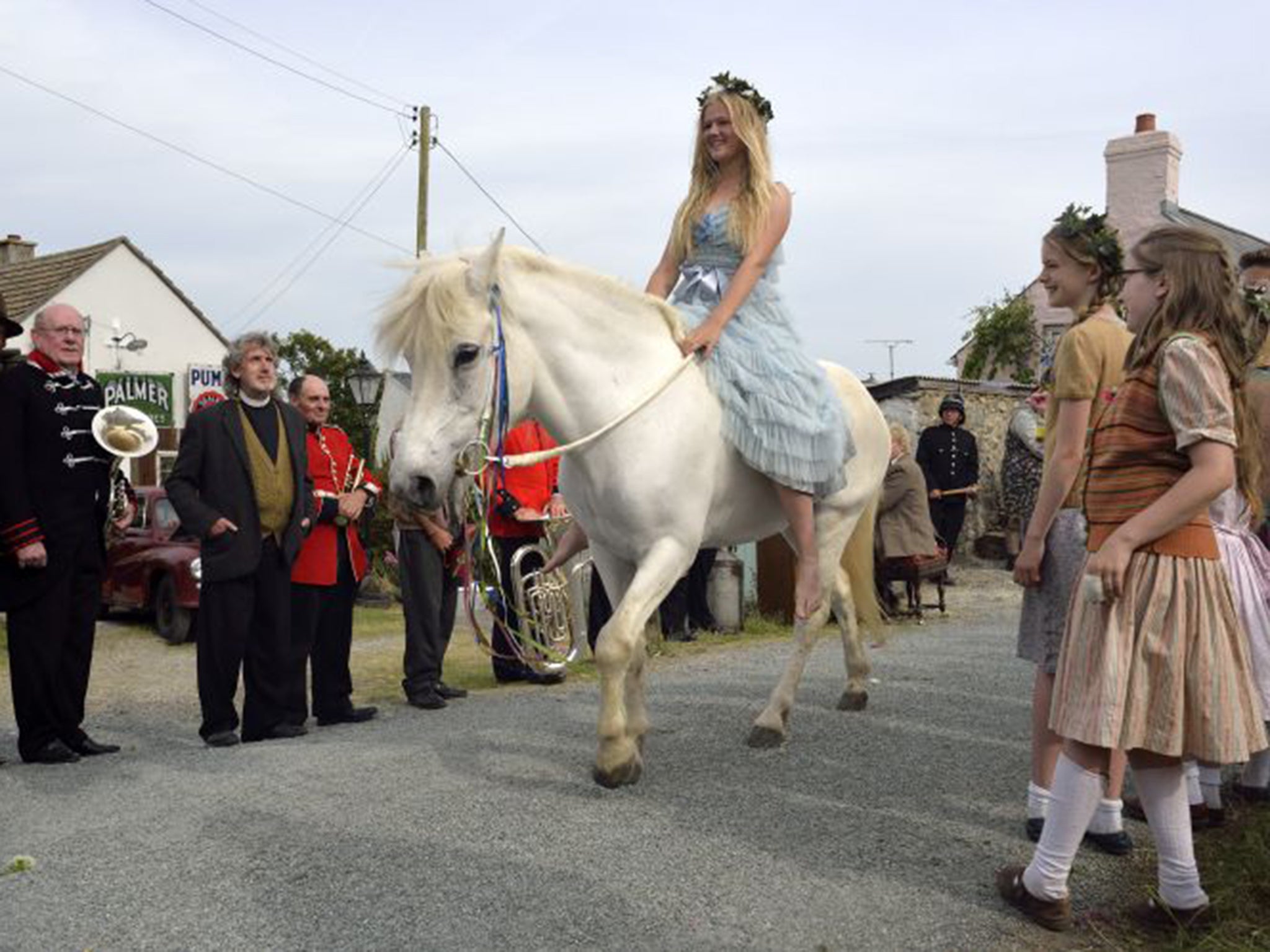
Through that experience, Church came into contact with feminist groups who were against the whole “rhetoric being used against women in the Sun and the Star and the Sport” and, she says: “I started to understand how corrupt shit was. I suppose the more you see this kind of stuff, the less you can undo seeing it. Eighty per cent of the papers are owned by five billionaires and it’s happening all over the world. That concentration of power and money in too few hands has never been very good historically. It’s trying to disentangle the relationship that media moguls have with politicians; to take away some of the power on each from the other because that is damaging to a society. After seeing that, I started getting more and more annoyed at the Tory government and when they got in again I was totally devastated.”
The day after the election last summer, Church took to the streets of Cardiff to join an anti-austerity march holding up a home-made placard that read: “I’M MAD AS HELL AND I’M NOT GOING TO TAKE IT ANY MORE.” Since then, she has become increasingly involved in the People’s Assembly Against Austerity and been ridiculed in the press as a sort of Valleys version of Russell Brand. Do the pair of them get together frequently, then, to plot the downfall of the Government and the right-wing press? “I met him at an anti-austerity thing in June,” she says. “He was very, um, ‘My child…’ It was all a bit religious, but I’m not a believer. I think it’s a shame that he’s been pushed to the point where he’s basically like… I mean, where’s he gone?”
More recently still, certain sections of the media had a field day (“Voice of an Angel, brain of an Angel Delight”) when Church announced, on Question Time, that the situation in Syria had been caused by global warming. “I’m a total science geek,” she says, bringing copies of American Scientific and New Scientist out of her bag, “and I’d seen that report and even the American government had said that the climate situation had quadrupled the threat. So, because I’d found that interesting, that other people might too, but also, what the fuck do you say when they ask you about Syria on Question Time?” And what about the oft-repeated accusation that people who are financially comfortable become instant hypocrites (“champagne socialists”) when they show any sign of leaning to the left? “For me, society works better when people are tolerant, supportive and giving to those less fortunate,” she says. “I understand that right-wing view of what’s mine is mine and I’ve earned it and I deserve it, but I feel that people with that mentality are missing the wider point. There’s so much more to life than I’m all right Jack. And anyway, I’m not alright. Yes, I can care for myself and my family and I’m a wealthy person, but I’m not fucking alright with it. I come from a working-class background, I stayed in Wales, pretty much stayed with my group of friends and some are doing well and some of them are on the bones of their arse.”
Has she got any regrets about any decisions she has made along the way? “A lot of people will say, ‘Well you once said this or that,’ but I don’t think you ever stop reinventing yourself – I’m constantly evolving, constantly growing and learning new things so my view is always changing.” That sounds, I say, like a politician’s answer. Surely you must have made some poor choices along the way? “The only time I played ball with the media was when my kids were born and I did an OK! shoot,” she admits. (She has a boy and a girl, aged eight and six.) “It wasn’t solely my choice; there was the father of the children [Henson] as well. There were also 15 photographers outside our door so we thought, let’s take away the worth from any of their pictures. I felt really bad about it but I gave away all the money I earned to charity.”
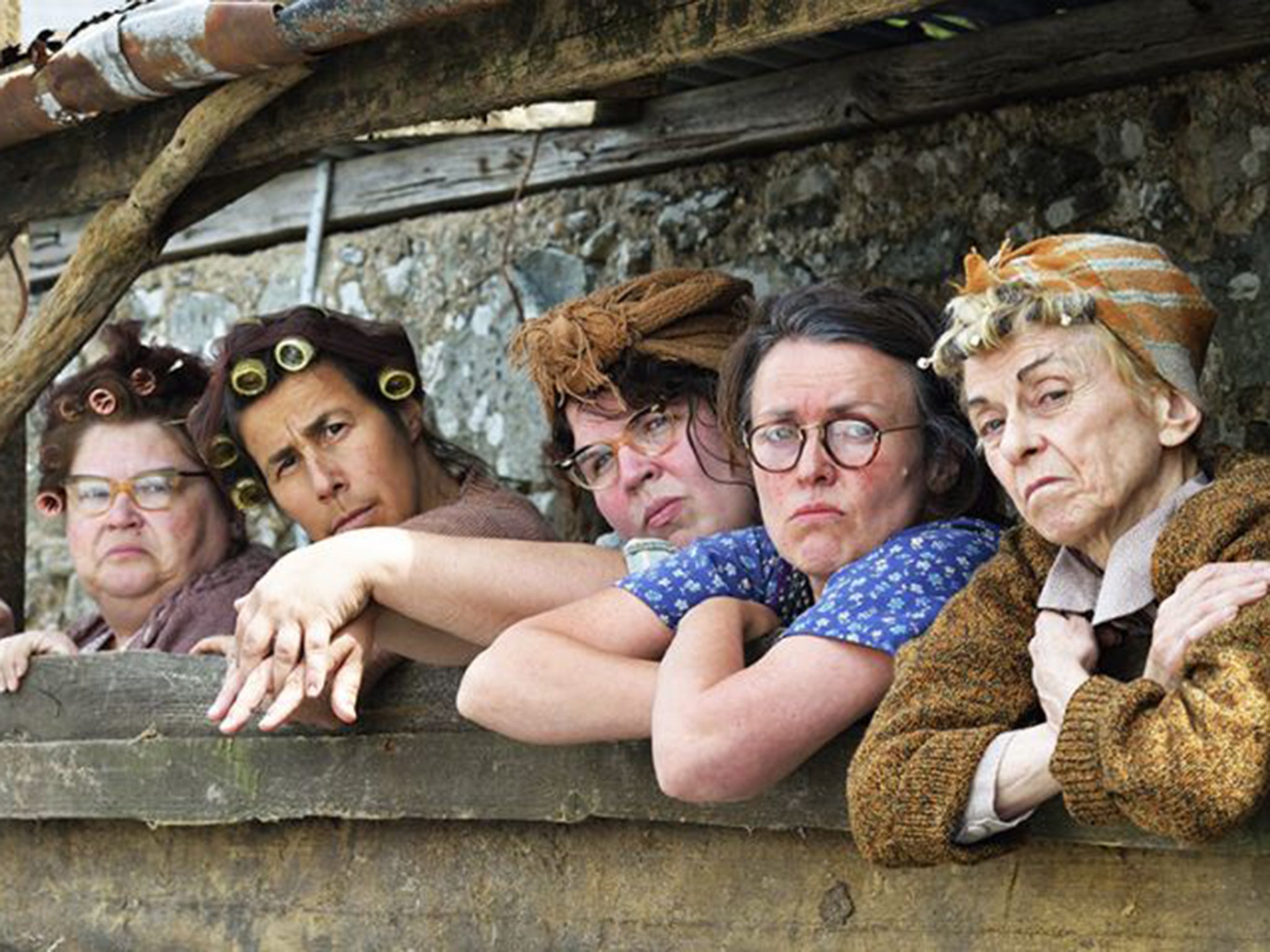
And what about the yacht you and Henson bought in 2008? “OK, yeah, the yacht,” she laughs. “But we only had it for about nine months, it was far too expensive.” So that is where Charlotte Church is at today. Willing and able to change her mind as often as she changes her hair colour, as sharp as a button and determined to be true to herself against all the outside pressure to remain suspended in some other time. She is, you might say, no better than she should be but that’s good enough for me.
‘Under Milk Wood’ opens in selected cinemas on Friday
Subscribe to Independent Premium to bookmark this article
Want to bookmark your favourite articles and stories to read or reference later? Start your Independent Premium subscription today.
Join our commenting forum
Join thought-provoking conversations, follow other Independent readers and see their replies
Comments